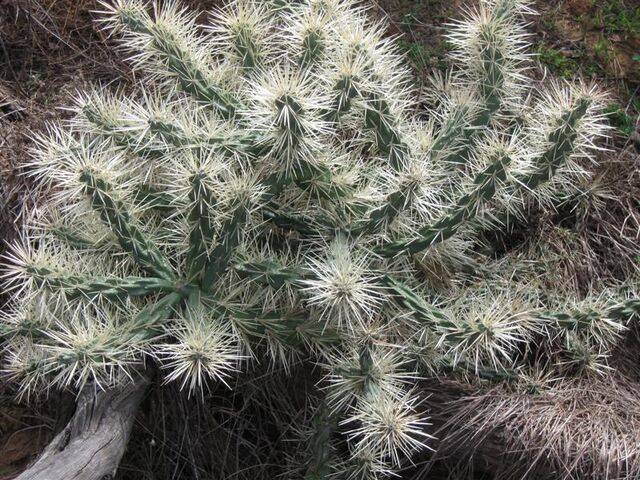
Be careful with cacti: Biosecurity Queensland
Be careful with cacti: Biosecurity Queensland
Friday September 5 2014, 7:00am
Biosecurity Queensland is reminding people in northern Queensland to not grow or distribute unknown cacti, as they may be pests.
A number of declared cacti species were found recently growing in a Charters Towers backyard.
Biosecurity Queensland Weed and Pest Officer Lauren O’Bryan said although cacti make fantastic drought tolerant garden plants, they can also become highly invasive.
“This week Biosecurity Queensland successfully removed one Class 1 pest and two Class 2 cacti pests from a Charters Towers backyard,” Ms O’Bryan said.
“The Opuntia and the Cylindropuntia varieties were growing in a front garden and another resident reported the sighting after recognising the serious pests. The owner didn’t realise the varieties were pests.
“There are no cacti species native to Australia. In Queensland, most Opuntia and Cylindropuntia species in the Cacti family are declared pests.
“It is an offence for these cacti species to be grown in backyard gardens, traded, or sold.
“You can identify Opuntia species cacti by their flattened segments, some with spikes. Cylindropuntia species can vary in height and growth habit but have cylindrical, branched segments.”
Ms O’Bryan says the latest finding serves as a timely reminder that good biosecurity practice is everyone’s responsibility in order to keep Queensland free of pests and threats.
“We don’t want another incident like the prickly pear invasion in the 1920s that infested 24 million hectares of land,” she said.
“If you believe you have pest cacti plants growing on your property, contact your local council or Biosecurity Queensland to come and investigate.”
